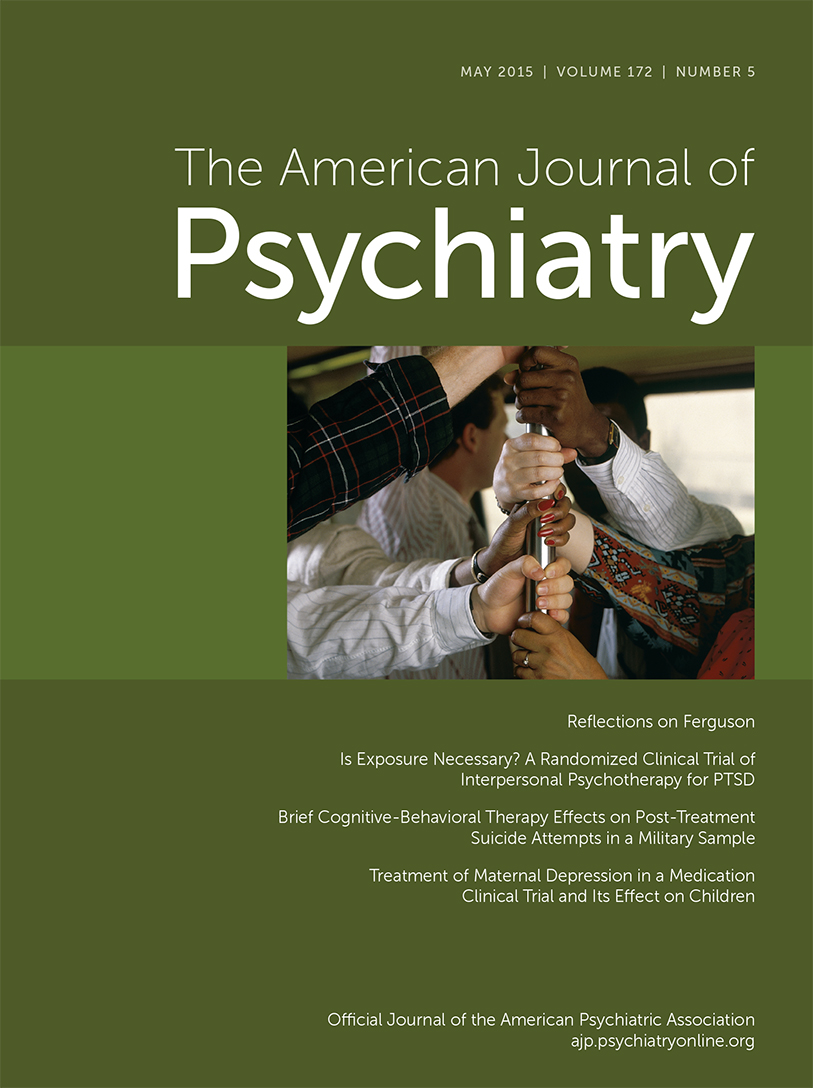Is Exposure Necessary? A Randomized Clinical Trial of Interpersonal Psychotherapy for PTSD
Abstract
Objective:
Exposure to trauma reminders has been considered imperative in psychotherapy for posttraumatic stress disorder (PTSD). The authors tested interpersonal psychotherapy (IPT), which has demonstrated antidepressant efficacy and shown promise in pilot PTSD research as a non-exposure-based non-cognitive-behavioral PTSD treatment.
Method:
The authors conducted a randomized 14-week trial comparing IPT, prolonged exposure (an exposure-based exemplar), and relaxation therapy (an active control psychotherapy) in 110 unmedicated patients who had chronic PTSD and a score >50 on the Clinician-Administered PTSD Scale (CAPS). Randomization stratified for comorbid major depression. The authors hypothesized that IPT would be no more than minimally inferior (a difference <12.5 points in CAPS score) to prolonged exposure.
Results:
All therapies had large within-group effect sizes (d values, 1.32–1.88). Rates of response, defined as an improvement of >30% in CAPS score, were 63% for IPT, 47% for prolonged exposure, and 38% for relaxation therapy (not significantly different between groups). CAPS outcomes for IPT and prolonged exposure differed by 5.5 points (not significant), and the null hypothesis of more than minimal IPT inferiority was rejected (p=0.035). Patients with comorbid major depression were nine times more likely than nondepressed patients to drop out of prolonged exposure therapy. IPT and prolonged exposure improved quality of life and social functioning more than relaxation therapy.
Conclusions:
This study demonstrated noninferiority of individual IPT for PTSD compared with the gold-standard treatment. IPT had (nonsignificantly) lower attrition and higher response rates than prolonged exposure. Contrary to widespread clinical belief, PTSD treatment may not require cognitive-behavioral exposure to trauma reminders. Moreover, patients with comorbid major depression may fare better with IPT than with prolonged exposure.



